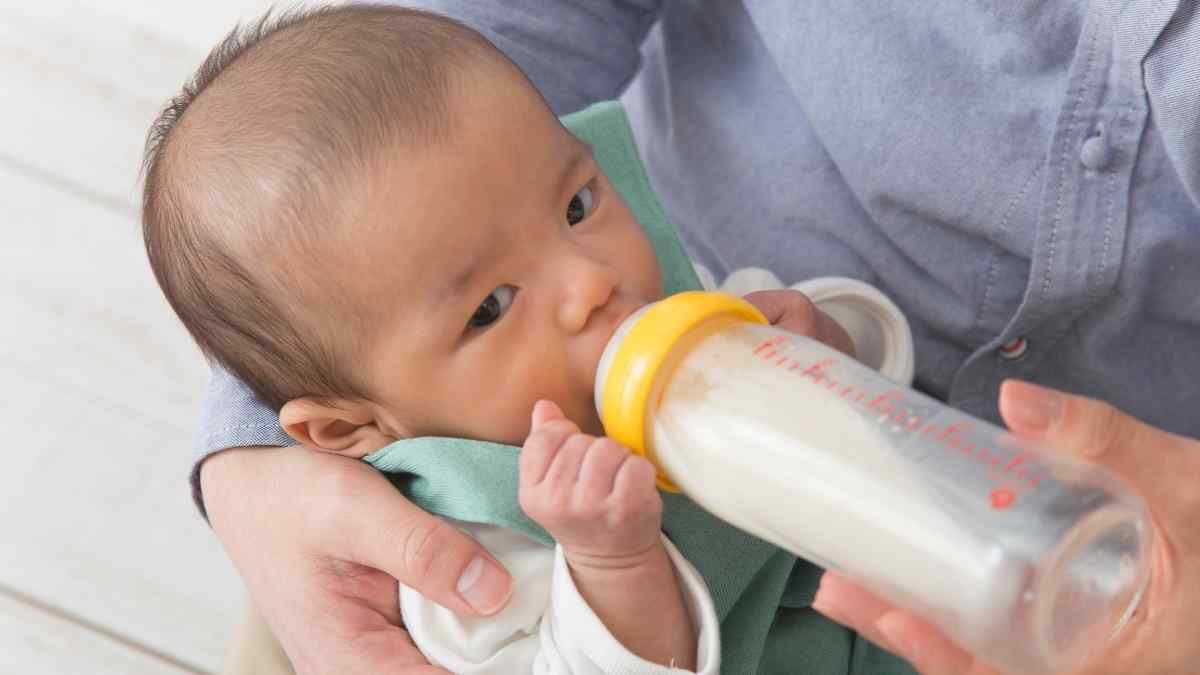The journey of parenting is filled with countless decisions, each bearing its weight in shaping the health and well-being of the newborn. One of the most fundamental decisions revolves around feeding: breastfeeding or formula-feeding. While both methods have their merits, they also come with their unique challenges. A critical concern that parents often grapple with is ensuring their baby remains well-hydrated. Dehydration, though relatively rare, can have serious repercussions for infants, making early detection and understanding of its causes vital.
This article delves deep into the nuances of dehydration as it pertains to both breastfed and formula-fed babies, offering insights, comparative analysis, and guidance for concerned parents navigating this essential aspect of infant care. Whether you’re a new parent, an expecting one, or simply seeking knowledge, this comprehensive exploration will equip you with the information you need to make informed choices for your baby’s hydration needs.

Understanding Dehydration in Babies
The joy of welcoming a newborn is unparalleled, yet it comes with its set of challenges. One significant concern that new parents often grapple with is understanding dehydration in babies. As peer-reviewed studies suggest, babies, especially infants, are at a higher medical risk for dehydration than older children or adults.
Defining Dehydration and Its Symptoms
Dehydration occurs when the baby loses more fluids than they take in. For newborns and infants, breast milk or infant formula serves as the primary source of all the fluids they need. Common signs of dehydration include a dry mouth, cracked lips, and sunken eyes. Babies might have fewer wet diapers than usual, with older babies producing fewer soiled diapers. A sunken soft spot on the baby’s head, dry mucus membranes, and extreme lethargy are also indicators. Severe dehydration can lead to hypernatremic dehydration, where sodium levels in the blood rise, posing a serious medical risk.
Why Are Infants More Susceptible?
Infants maintain a delicate fluid balance in their tiny bodies. Their total body content is more fluid than previously assumed in older children or adults. This makes them get dehydrated quickly, especially if they fall sick. Diarrhea, a sore throat that makes baby feeding painful, or any illness that makes a baby refuse breast or bottle feed can lead to dehydration. Moreover, in situations of extreme heat, if babies aren’t dressed in breathable clothing, they can lose more fluids through sweating.
Breastfeeding, Formula, and Hydration
Breast milk is nature’s wonder fluid. It provides infants with enough fluid, nutrients, and antibodies. During the first week after birth, it’s essential to ensure the baby is getting enough breast milk. Tracking the number of wet and dirt diapers can provide an insight into how much milk the baby is consuming. Typically, breastfed babies should have at least six wet diapers a day after the first week. On the other hand, parents using infant formula should ensure the correct preparation to prevent dehydration. Over-concentrated formula can elevate sodium levels, while diluted formula might not provide enough nutrients.
The Imperative of Early Detection and Action
Spotting the signs of dehydration early is crucial. Regular feedings, whether breastfeeding or bottle-feeding, can prevent dehydration. If a mother is concerned about her breast milk supply or if the baby seems sick and refuses to nurse, seeking advice from a lactation consultant or doctor is the best course of action. If a baby shows signs of severe dehydration, like dry mucus membranes or hypernatremic symptoms, they might be clinically dehydrated and need IV fluids. In such cases, immediate medical attention at a hospital is paramount.

Breastfeeding: The Natural Approach
Following our exploration into the intricacies of dehydration in infants, we delve into a natural approach to baby feeding: breastfeeding. As many peer-reviewed studies suggest, breast milk is not just a source of nutrition; it’s a dynamic, adaptable fluid that evolves to meet the ever-changing needs of the growing baby.
The Marvel of Breast Milk Composition
Breast milk is an intricate blend of nutrients, antibodies, and enzymes. Its composition changes from feed to feed, adapting to the baby’s needs. For instance, the milk produced during the initial days after birth, known as colostrum, is rich in antibodies and helps the newborn build a robust immune system. As days progress, the milk changes in consistency and nutritional content, ensuring the infant receives all the fluids and nutrients essential for growth.
Factors Leading to Dehydration in Breastfed Babies
While breastfeeding is a natural process, it’s not devoid of challenges. Several factors can put breastfed babies at an increased risk of dehydration:
1. Inadequate Feeding Frequency: Newborns need regular feedings, often every few hours. If a baby isn’t feeding frequently enough, they might not get enough fluids, leading to fewer wet and soiled diapers, a sign of potential dehydration.
2. Latching and Milk Supply Issues: Proper latching is crucial for the baby to extract milk efficiently. Issues with latching or a low breast milk supply can mean the baby isn’t getting enough milk. Consulting with a lactation consultant can help address these challenges, ensuring the baby receives adequate nutrition.
3. Illness in Mother or Baby: If the baby is sick, symptoms like vomiting or diarrhea can lead to fluid loss. Similarly, if a mother falls ill, it might affect her milk supply. In such cases, it’s vital to monitor signs of dehydration, like dry mouth, sunken eyes, or a sunken soft spot on the baby’s head, and seek medical intervention if needed.
The Necessity of Vigilance
Breastfeeding, while natural, requires attention and understanding. Mothers should be alert to common signs of dehydration in their babies. For instance, a significant drop in birth weight, dry mucus membranes, or hypernatremic dehydration symptoms are serious indicators. In situations of extreme heat, dressing the baby in breathable clothing and ensuring a cool environment can prevent excessive fluid loss.
Parents should also know when to seek medical help. If a breastfed baby shows signs of severe dehydration, immediate hospital intervention might be necessary, with treatments like IV fluids being the best course of action.

Formula Feeding: A Different Composition
After exploring the wonders of breastfeeding and its adaptability to meet a baby’s needs, it’s essential to discuss an alternative that many parents opt for or necessitate: formula feeding. Infant formula, while different in composition from breast milk, is scientifically developed to cater to the nutritional requirements of babies.
An Insight into Infant Formula
Infant formula is a carefully crafted blend of proteins, fats, carbohydrates, vitamins, and minerals, designed to mimic the nutritional components of breast milk. Though it lacks the antibodies present in natural breast milk, it provides essential nutrients to ensure the baby’s growth and well-being. The consistency of the formula can vary based on its type, whether powder, concentrated liquid, or ready-to-use.
Potential Causes of Dehydration in Formula-Fed Babies
While formula feeding is a reliable method, certain missteps can lead to dehydration in babies:
1. Incorrect Formula Preparation: It’s imperative to follow the preparation guidelines provided on the formula’s packaging. Incorrect measurements or skipping steps can alter the formula’s nutritional balance.
2. Over-Dilution or Too Concentrated Formula: Diluting the formula more than recommended can deprive the baby of essential nutrients, leading to dehydration. Conversely, making it too concentrated can elevate sodium levels in the baby’s system, causing hypernatremic dehydration.
3. Infrequent Feeding or Overfeeding: Just as with breastfeeding, regular feedings are crucial for formula-fed babies. Infrequent feedings might mean the baby isn’t getting enough liquids, indicated by fewer wet and dirty diapers. On the other hand, overfeeding can lead to vomiting, causing fluid loss.
Guarding Against Dehydration in Formula-Fed Infants
Parents should be observant for signs of dehydration, such as cracked lips, a significant drop in birth weight, or fewer wet diapers. Babies, whether breastfed or formula-fed, are vulnerable to dehydration in hot weather, so ensuring they receive enough liquids is crucial.
If any symptoms of dehydration are noticed, like the baby appearing sick or showing underlying causes like diarrhea, it’s essential to consult a doctor. In severe cases, immediate intervention at a hospital, possibly with treatments like IV fluids, might be the best course of action.

Preventive Measures and Solutions
Following our deep dive into the complexities of both breastfeeding and formula feeding, it becomes evident that while each method has its unique challenges, the overarching aim remains the same: ensuring the baby’s well-being. Dehydration, whether in breastfed or formula-fed infants, is a concern that can be averted with the right knowledge and practices. Here, we shed light on preventive measures and solutions that can help parents navigate this aspect of infant care.
1. Adhering to Proper Feeding Techniques and Schedules
Regular feeding, irrespective of the method, is the frontline defense against dehydration. Monitoring how much milk the baby consumes and ensuring they have frequent wet and dirty diapers is a clear indication of adequate hydration. For older babies, a schedule that aligns with their natural hunger cues is essential. Proper latching for breastfeeding and correct bottle-feeding techniques can make a significant difference.
2. Early Recognition of Dehydration Signs
Being vigilant about the signs of dehydration can lead to timely intervention. Common symptoms include a sunken soft spot on the baby’s head, cracked lips, and fewer wet diapers. If a baby appears sick or if there’s an underlying cause like vomiting or diarrhea, it amplifies the need for immediate attention.
3. Introducing Supplemental Hydration
While breast milk or formula should be the primary source of hydration for the first six months, there might be situations, especially in hot weather, where supplemental hydration becomes necessary. Introducing small amounts of extra water, especially for formula-fed infants, can help prevent dehydration. However, it’s crucial to consult a pediatrician before making any changes to the baby’s fluid intake.
4. The Integral Role of Healthcare Professionals
Pediatricians play a pivotal role in guiding parents through the maze of infant care. Regular check-ups can help detect any irregularities in the baby’s growth or hydration levels. Lactation consultants, on the other hand, are invaluable for mothers who breastfeed. They provide guidance on latching, feeding schedules, and address concerns related to breast milk supply.

Conclusion
The journey of early parenthood is intricate, filled with decisions that have profound implications for a child’s health. Dehydration in infants, whether breastfed or formula-fed, is a critical concern but one that can be navigated with the right knowledge and support. Through this comprehensive exploration, we’ve underscored the importance of recognizing early signs of dehydration, the unique challenges and benefits of both breastfeeding and formula feeding, and the preventive measures to ensure optimal hydration.
It’s evident that while the feeding methods may differ, the goal remains consistent: to ensure the baby’s well-being and health. Regular consultations with healthcare professionals, be it pediatricians or lactation consultants, are invaluable in this journey. Every parent’s commitment, informed choices, and vigilance ensure that babies grow healthily, laying the foundation for a thriving future. Whether you’re a new parent, soon-to-be, or someone seeking insights, remember that the best care stems from understanding, love, and the relentless pursuit of knowledge.
Did this article help you learn more about the topic? Please let us know in the comments below! If you have any questions, we’re here to help.



